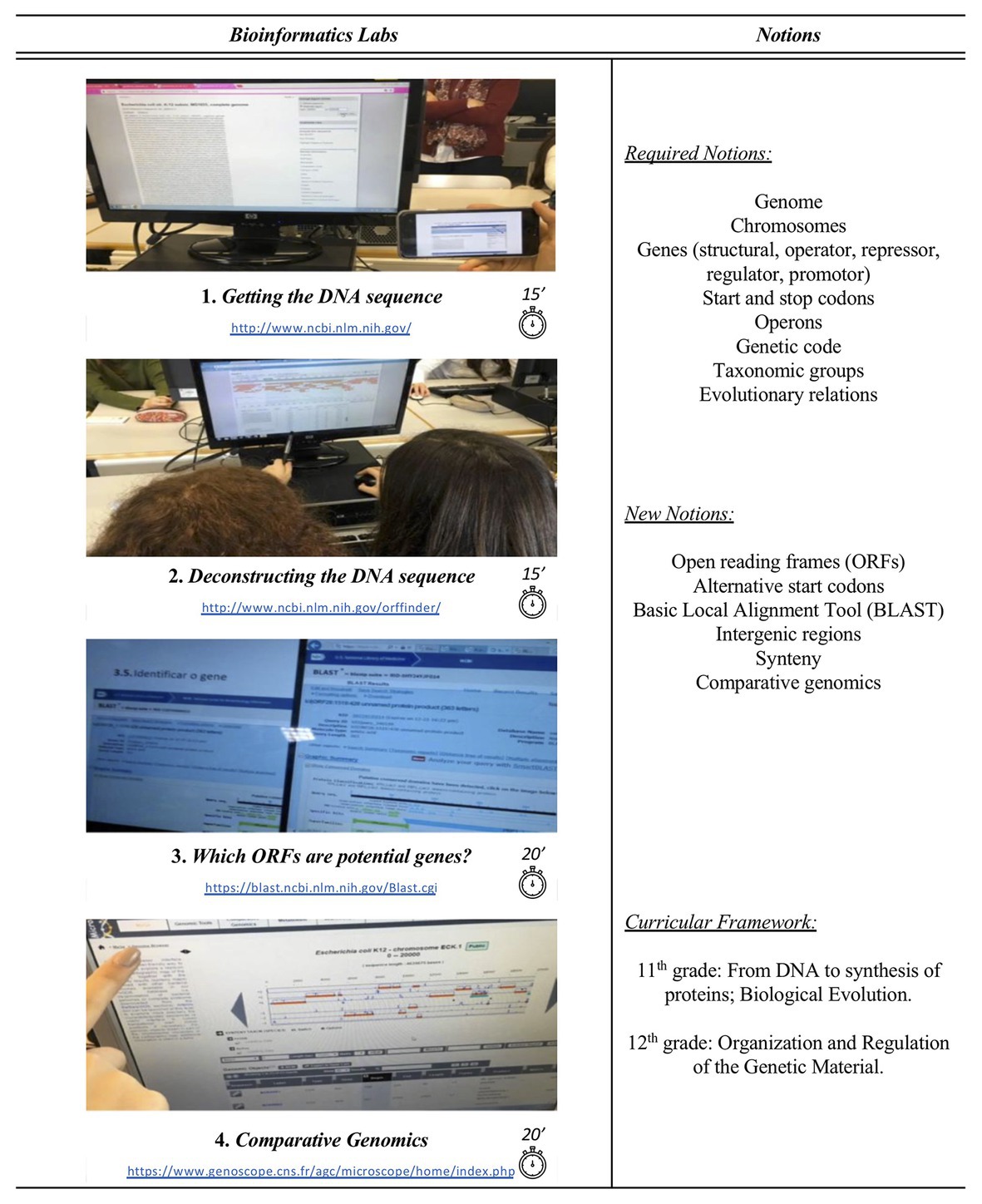About Bioinformatics Tutor
About Bioinformatics Tutor
Blog Article
The Greatest Guide To Bioinformatics Tutor
Table of Contents8 Easy Facts About Bioinformatics Tutor ExplainedThe 10-Second Trick For Bioinformatics TutorAll About Bioinformatics TutorGet This Report on Bioinformatics TutorSome Known Details About Bioinformatics Tutor
Of the overall individuals associated with the training, 80% were students from public greater education organizations, while the staying 20% originated from personal institutions. To certify for a certification of engagement, trainees were called for to go to at the very least 90% of the total training hours. As an outcome of this requirement, an impressive 95% of the participants effectively acquired their certifications, having not only satisfied the minimum participation criteria yet likewise finished all appointed activities throughout the training.
During the elevation of the COVID-19 pandemic, specifically in between June and August 2020, the task group was entrusted with arranging specialized training in bioinformatics. This training was particularly targeted at trainees from the study team Nucleus for Study in Applied Computer at the Federal College of Pará (UFRA) The adaptation to remote learning platforms as a result of the pandemic developed an opportunity to check out brand-new mentor techniques and electronic devices that boosted both reach and efficiency.
This course was created to offer an obtainable yet comprehensive introduction of Artificial Intelligence methods, particularly as used in bioinformatics (Bioinformatics Tutor). This digital layout allowed participation from trainees throughout Brazil, numerous of whom may not have had the opportunity to go to in-person sessions.
Bioinformatics Tutor for Beginners
Approximately 50% of the complete training hours were committed to functional tasks where trainees constructed smart models and applications in a range of clinical domains, including genes, molecular biology, and ecological information evaluation. These systems enabled trainees to involve in real-time data manipulation, model training, and formula testing.
The program brought in 80 individuals in total amount. Sixty of them were associated with numerous college establishments in the state of Pará, while the continuing to be twenty originated from establishments found in five various other Brazilian states. This broad geographical representation highlighted the nationwide interest in bioinformatics and the growing demand for specialized skills in this field. By presenting Artificial Intelligence in a useful and pertinent context, the campaign offered to bridge the space in between theory and real-world application, supplying students with a strong foundation for future research study or employment in the area.
The training effort developed component of a wider scholastic outreach effort called the Bioinformatics when driving project. This job has, right here throughout the years, introduced loads of pupils to the world of bioinformatics and computational biology. The occasions held under this umbrella campaign have taken place across numerous regions and years, as summed up in Table 1 (Checklist of events, places, years, and overall numbers of pupils and teachers)
Several of these groups, originally brought together by their participation in training occasions, have considering that gone on to generate independent scientific research in collaboration with regional scholastic organizations. The training not only promoted scientific thinking within the context of bioinformatics however also stimulated joint partnerships that extended past the training setting.
The Buzz on Bioinformatics Tutor
The same team, omitting IH and RR, also acted as tutors for the useful training components. Financing for the job was supplied via the give 88887.200562/ 2018-00 from CAPES.
The Federal College of Pará's Office of Research (PROPESP/UFPA) likewise gave financial assistance, particularly for the production of the last manuscript. The authors declare no industrial or financial conflicts of rate of interest that might have affected the research study. All interpretations and point of views revealed in this short article are only those of the writers browse this site and do not always show those of their corresponding institutions, the publisher, editors, or customers entailed in the publication process.

Not known Facts About Bioinformatics Tutor
From an instructional point of view, the mentor approach made use of in the training was purposefully interactive. Classes were carried out in a way that urged pupil engagement and conversation, exceeding rote memorization to check out exactly how ideas are established, used in day-to-day life, and evaluated in scholastic settings. The educational viewpoint concentrated on nurturing both strong and having a hard time trainees, providing individualized support, and structure self-confidence through sustained mentorship and persistence.

Each team, consisting of around 36 individuals, was sustained by three mentors-- the majority of whom were postdoctoral scientists with specialized proficiency. These mentors not only helped develop the team tasks but likewise promoted their execution, guaranteeing that each study question was both pertinent and suitably difficult. The objective was to give a biologically sensible context that individuals can explore through flexible purposes and access to curated datasets.
For extra insights into the method and results of this project-based understanding approach, readers Find Out More are directed to S1 Text, that includes in-depth descriptions of the pedagogical structure, evaluation methods, and project motifs made use of in the training sessions.
Bioinformatics Tutor - The Facts
Of the total amount participants involved in the training, 80% were trainees from public higher education and learning establishments, while the continuing to be 20% came from exclusive organizations. To certify for a certification of involvement, trainees were called for to go to at least 90% of the overall training hours. Notably, past the students that enlisted in the training sessions, 7 skilled trainers took part in supplying the training courses, while 3 devoted study teachers worked with the total training procedure. About 50% of the overall training hours were dedicated to useful activities where students built intelligent designs and applications in an array of clinical domains, including genetics, molecular biology, and environmental information evaluation. The training not just fostered clinical reasoning within the context of bioinformatics but likewise triggered collaborative connections that prolonged past the training setting.
Report this page